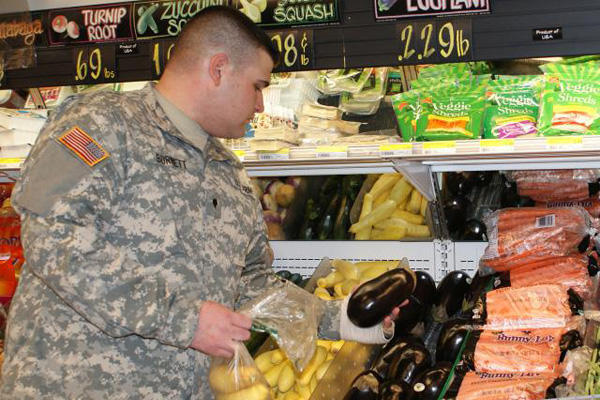Fresh fruit and vegetable prices at commissaries in Asia and Guam could fall if a rule included in new legislation is approved.
The measure, added this week to a draft appropriations bill, would grant the Defense Commissary Agency $48 million to ship fruits and vegetables from the U.S. to military commissaries in Korea, Japan and Guam.
Until late last year, those shipment costs had been covered by taxpayers. But a new produce contract put in place by the agency in November instead required the contractor to cover the cost, meaning that it would be passed on to commissary shoppers. Officials said the contractor would source vegetables from locations in-country or nearby, reducing the amount they, and therefore shoppers, would have to spend on expensive airlifting.
But ever since the change, shoppers in those areas have complained that prices on produce have increased while selection and quality have deteriorated. In early December, for example, prices on bagged, pre-washed lettuce rose to $10.69 each, although they have since leveled off.
The new measure, if passed by the House and Senate and signed by the president, would return to the agency funds that could only be spent on shipping fresh fruits and vegetables, the legislation says.
"Not less than $48,000,000 shall be used to support the transportation of fresh fruits and vegetables to commissaries in Asia and the Pacific," it says.
In early April Rep. Duncan Hunter, a Republican from California and a member of the House Armed Services committee, sent the Defense Department a letter asking them to investigate the fluctuating commissary produce prices in Japan, Korea and Guam and whether or not "Manager's Special" pricing is being used to mask the true cost. He also said he has heard reports that shoppers are being instructed to not take photos of the prices they see.
Commissary officials said his accusations are not true.
"The suggestion that 'manager's specials' are an 'illusion' that DeCA is not delivering the best prices on produce in Guam is also far from reality," the agency said in a statement.
"When a customer takes photos in a commissary we do ask that they be mindful not to interrupt a fellow patron's shopping experience because they have a right to privacy," it said. "There also are certain restrictions as far as photographing secure areas such as cash cages, warehouse areas and secure entrances. Bottom line, our people are not being instructed to tell patrons not to take photos inside the store."
-- Amy Bushatz can be reached at amy.bushatz@military.com
A previous version of this story misstated the committee which passed the funding increase. The funding was passed by the House Appropriations committee.




























